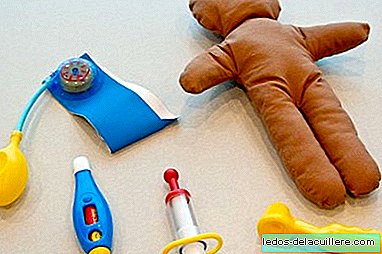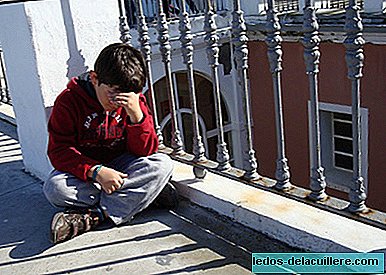
Does a hospitalized child have the right to information? From what age? When can a patient decide for himself in a hospital about his health? Many of these questions are answered in the patient's autonomy law, which defines the health rights of children (and of all people) in this regard.
The full name of these rules is Law 41/2002, of November 14, basic regulator of patient autonomy and rights and obligations regarding information and clinical documentation. It is a very important law for patients and healthcare staff. The law aims to define the rights of patients and favor the right to decide on health issues (patient autonomy).
The main sections dealt with in this law that promotes the autonomy of minors in health matters, and that therefore should be known in Pediatrics and by parents, are:
The right to information of all clinical aspects. The information must be understandable and appropriate to the needs of each patient and situation. It must be given by the responsible doctor. The holder of the right to information is the patient older than 16 years. In the case of children under 12, parents are informed. But you also have to inform the child and try to seek their assent (agree), even if they have no capacity to decide. Between the ages of 12 and 16 it is a duty of the doctor to also inform the adolescent because, in case of sufficient maturity, he can decide.
The right to patient autonomy, which is expressed with informed consent. It is to give free, voluntary and conscious consent, after receiving the appropriate information, to make health decisions. Informed consent is a process that is established between the doctor and the patient, so that he understands all issues related to the diagnosis, treatment and prognosis of the disease. It is usually done by word, but there are situations in which it has to be given in writing: surgical interventions or procedures that pose significant risks to the patient.
Consent for representation. It is the consent given by replacing the patient, taking into account that it must always be in favor of the patient and making him participate as much as possible. It is done when: the patient is not able to make decisions, at the discretion of the responsible physician, or his physical or psychic state does not allow him to take charge of his situation; when the patient is legally disabled; the minor patient who is not able, intellectually or emotionally, to understand the situation.
The right to privacy of information related to people's health. It is the right to respect the confidentiality of health data (especially protected) and that no one can access them without prior authorization. Access to these data of the minor follows the same criteria mentioned for information and informed consent.
How to act before a minor hospitalized
The child acquires his autonomy to the extent that his parents grant it and it is their duty to help children make their own decisions and acquire their personal independence. The behavior before a minor should be the following, as a general rule:
- Hear: Since he has reason. That is, listen to what the child says.
- Record that it has been heard. From the age of 12 That is, it must be recorded in the medical record.
- In children under 12 years: the consent will be given by the legal representative (usually the parents), after hearing their opinion.
- Between 12 and 16 years old: when the responsible physician considers that the minor is capable of making a decision (has sufficient maturity) or the minor is emancipated, the will of the minor prevails. There is an exception: in cases of serious risk, according to the doctor's criteria, the parents can be informed and their opinion taken into account in making the decision, without supposing this to replace the child's decision.
- From the age of 16: the child is autonomous to decide. It is what is known as coming of age. The practice of clinical research trials and assisted reproduction techniques require a different treatment.
As we see, The Patient Autonomy Law also affects children and, although we would not like to see ourselves in a situation of hospitalization, it is convenient to know what are your rights, our rights and the obligations of health personnel in this regard.












